
The Projective Nature of Video Games - Article
by VGChartz Staff , posted on 09 February 2018 / 4,999 ViewsVideo games can provide meaningful experiences. While this statement might prove contentious in relation to the simply constructed games of the past, I believe there are few gaming enthusiasts who would disagree with such an argument today. Gamers around the world passionately share their meaningful experiences across the web. On VGChartz, I enjoy reading forum members’ perspectives on video games as an artistic medium in terms of various games’ narrative impact, soundtrack appeal and ingenuity, and art style, among other debated qualities. Some game moments are so impactful that they are widely discussed years after their initial release (e.g., a certain scene with Aerith in Final Fantasy VII).

But, what if I proposed that games can impact us in a different way? What if there is an underlying meaning to the way we interact with the tools developers provide us with? With developers offering players more freedom than ever, the interpretive possibilities are almost endless. In this way, I see parallels between playing video games and my work in clinical psychology.
Psychological assessment has long involved projective testing, but no projective test is quite so recognizable as the Rorschach Inkblot Test, a test developed by Hermann Rorschach in the early 20th Century. The basic idea is that thoughts outside of our awareness (i.e., from the unconscious) project onto the card due to its ambiguous design. Our brains fill in the gaps.
Still there? Good, because we’re back to games (thanks for humoring me). I ask now that you humor me one more time. I’m going to write a word, and I want you to reflect on the first few games that come to mind.
Sandbox.
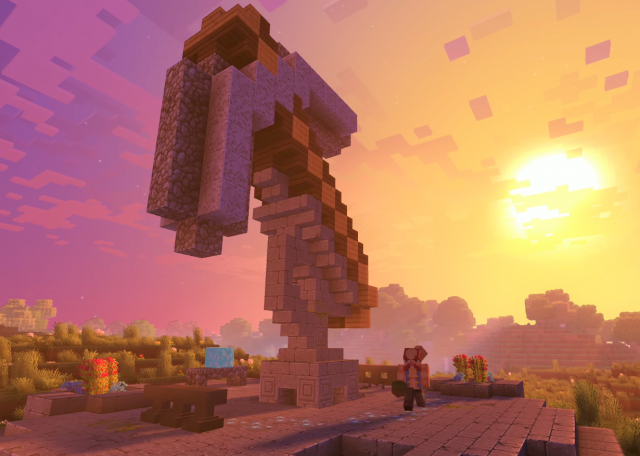
What came to mind for you? For me, it was Grand Theft Auto III, but I’m guessing some might think of other open-world games, like Minecraft, or Media Molecule’s upcoming Dreams, just to name two examples. GTA III was my first open-world game experience all the way back in 2002. My memories of roaming Liberty City are among my fondest, and I can still easily traverse the world without referencing the in-game map. I was amazed by the freedom Rockstar Games afforded its players. The opening moments alluded to the intended gameplay structure, but I could make the experience whatever I wanted – at least by PlayStation 2 standards.
Whether we are talking about a literal sandbox or video game sandboxes, the word conjures an image of a blank slate upon which one can impress what they like. Do you want to drive around the city obeying traffic laws? You can. Do you want to run over pedestrians and become a wanted criminal? You can do that, too!

Do you see the similarity in concepts?
What I'm asking you to think about is not so much how you play games but instead why you play games the way you do. Merging the sandbox analogy with psychology, it doesn’t matter what you build with sand; it matters why you built it. Almost regardless of your gaming interests, you have likely made many hundreds, if not thousands, of decisions that changed the course of gameplay.
But, I ask, why?
Games with stealth mechanics are an excellent example of this mental decision tree. Barring mistakes, what led you to spare one NPC and slay another? Games from other genres illustrate some of the same concepts. For example, I would be lying if I said I never left one of my Sims high and dry, or perhaps low and wet, by removing the pool ladder to trap them in the water. And yet, I feel I should also acknowledge that these actions don’t necessarily reveal anything dark about one’s psyche.
These choices are opportunities for self-discovery even if our instinct is to avoid looking beneath the surface. Trust me – most of the time, this avoidance is a good thing. It means our defense mechanisms are working. Otherwise, it would be a real bummer to worry about the people I accidentally killed in Heavy Rain or the relationships I ruptured in Animal Crossing. There is a time and place for everything, and that holds true with self-reflection, too.
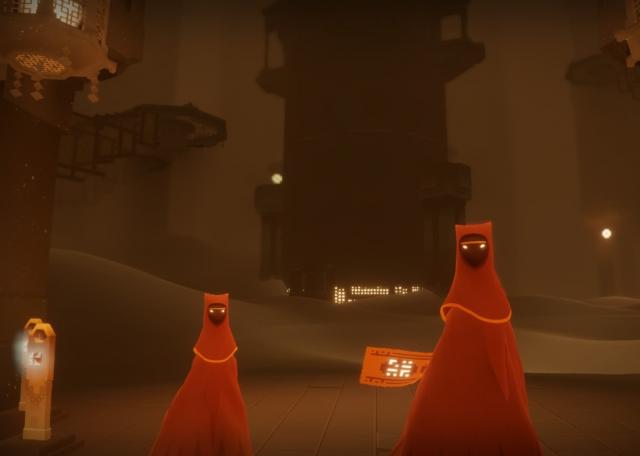
My most profound experience of finding unconscious meaning in game interactions occurred shortly after playing thatgamecompany’s Journey. The experience was nothing short of spiritual, and it was only after several days of reflection that I could properly articulate why I experienced it in that way. To this day, I attribute my personal revelations to the ambiguous structure of the game. Again, we see an example in which thatgamecompany provided just enough narrative and structure to guide me without supplying all the answers. I should also highlight that this game is an instance in which my interactions with even a linear game took on projective qualities. I found parts of myself in themes of not only life and death but also wealth and humanity’s drive for connection.
Yes, I discovered all that in a game that can be completed in under two hours.
Meaning attribution is individual. If the two of us played the exact same game, we could likely derive very different interpretations. Maybe your in-game aggression and control are a counterreaction to your feelings of disorganization and submission elsewhere in life. Alternately, perhaps your strong positive or negative reaction to a certain character speaks to your past experiences with similar people in your life. We don’t often think this way about video games, but you don’t have to look far to find examples in literature and film. In particular, Professor Umbridge from the Harry Potter series seems to stir up anger among the fanbase in large part because she serves as a reminder of the worst educators from our own pasts.
Lastly, I believe gamers often play games along a continuum of actions rather than single-mindedly. Control can coexist with chaos, aggression can follow passivity, and creation can be the precursor of destruction. A player who meticulously develops their city in Cities: Skylines might be just as likely to raze it to the ground, but these examples are certainly not exhaustive.

By now you might be wondering if this article has a particular point. It does, although whether you make anything of it is up to you. The point is simple; you can reflect on your gameplay experiences and find meaning – or do nothing at all. Self-care is important, and video games serve as an excellent escape from the “real world.” I’m not suggesting you do anything that ruins the fun. However, you might just learn something about yourself if you only look a little more closely. It might help to remember that, ultimately, we are the ones playing the games even as our character avatars so routinely deceive us with the illusion of separation.
Let me know your thoughts in the comments. I hope to read about some of your own experiences as well!
More Articles
I absolutly agree with this and I often find myself realizing some of my social interaction patterns, only after doing something similar with NPC's in games. Those NPC's usually represent a certain trope for me, tropes that I use to categorize my rel-world friends and acquaintances.
Even if for me the pur escapism value offered by video games is far higher on my priority list, the fact is that many gaming titles are amazing tools for introspection. On a personal level I adore some of the better made "walking simulators" or titles like Little Inferno or Virginia. They simply start the taught process and I often find myself lost in the mirror they open up :-)
I completely agree. It's important for me to prioritize having fun without missing out on other gameplay opportunities (e.g., introspection). I don't frequently play "walking simulators," but I almost always seem to take something important away from my experiences with them.




























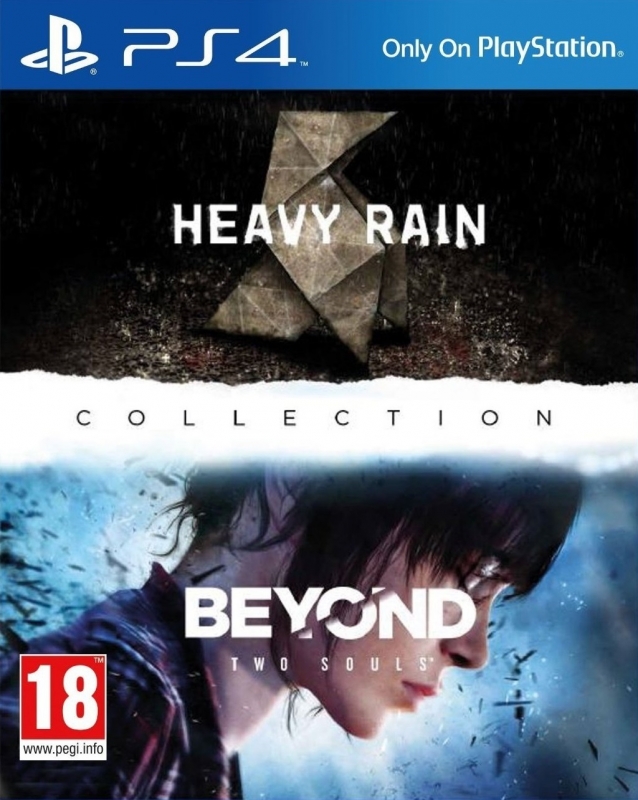
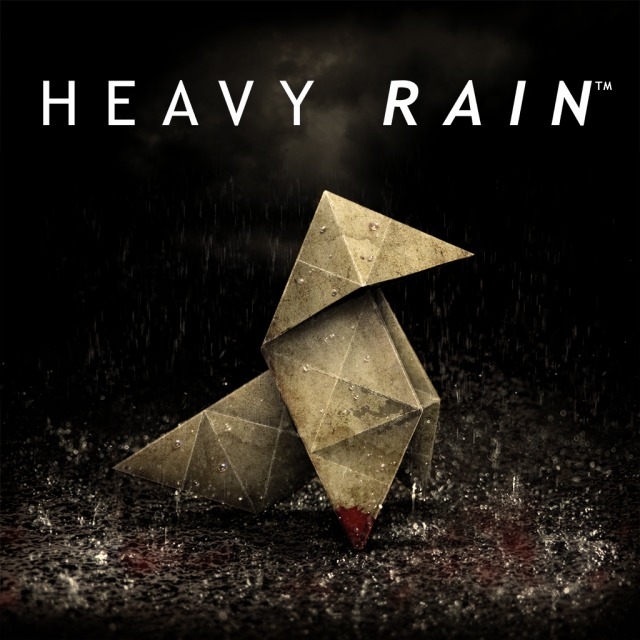




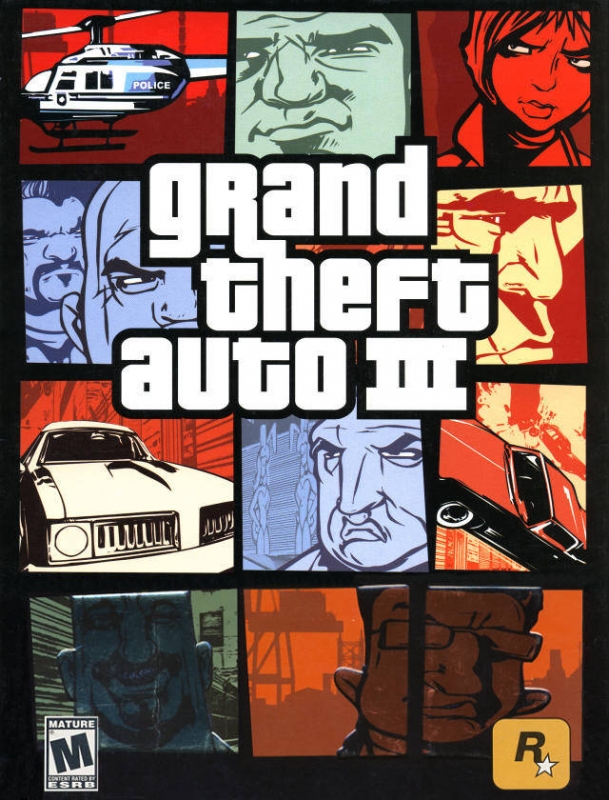






 Essay Pro
Essay Pro